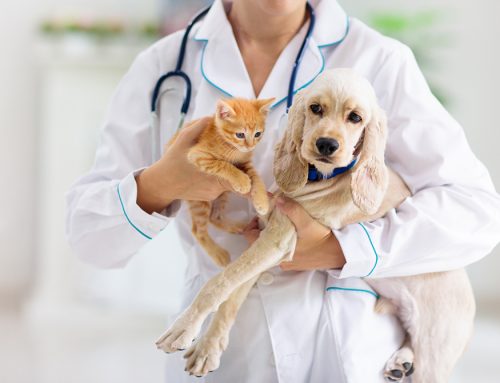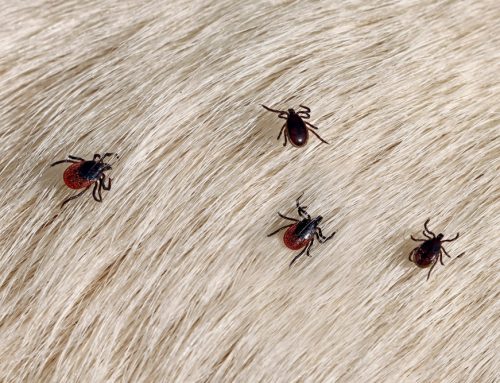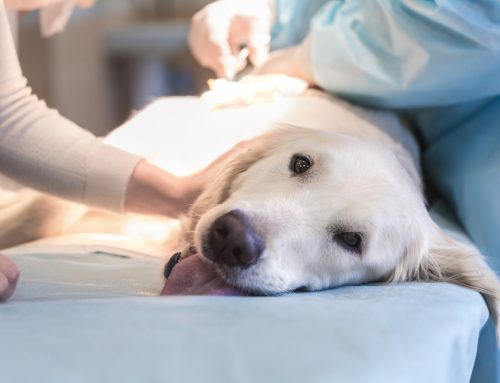Anxiety in pets is a common issue, but it is often misunderstood or overlooked. Yet, just like humans, pets experience fear, stress, and uncertainty. Anxiety can take many forms, such as trembling during thunderstorms, destructive chewing, or excessive barking. These behaviors aren’t just inconveniences—they’re your pet’s way of signaling distress. Understanding and addressing anxiety can transform your pet’s life, enhancing their happiness and well-being.
At Animal Doctors of O.C., we believe in compassionate, holistic care tailored to every pet’s unique needs. With convenient locations in Anaheim, Buena Park, and Mission Viejo, we’re here to help anxious pets and their owners.
Understanding the Causes of Anxiety in Pets
The first step in managing your pet’s anxiety is to uncover its root cause. Some triggers are obvious, while others are less apparent but equally impactful. Here are the most common reasons pets develop anxiety:
1. Loud Noises
Thunderstorms, fireworks, and even household appliances like vacuum cleaners can terrify pets. Repeated exposure to these sounds without intervention can result in long-term anxiety.
2. Separation Anxiety
Separation anxiety is one of the most frequent behavioral issues seen in dogs. It manifests as barking, chewing, house soiling, or attempts to escape when left alone. Cats can experience it too, often showing it through clinginess or destructive scratching. Learn more about separation anxiety from the ASPCA.
3. Changes in the Environment
Pets thrive on routine and predictability. Moving to a new home, introducing a new pet, or even altering daily schedules can disrupt their sense of security and lead to anxiety.
4. Health Problems
Anxiety in pets isn’t always behavioral. Pain, discomfort, or medical conditions like arthritis, thyroid issues, or cognitive dysfunction in senior pets can heighten stress levels. It’s essential to rule out underlying health issues with a veterinary examination. Explore how to address behavioral anxiety related to medical conditions with the American Animal Hospital Association’s guidelines.
Recognizing Anxiety: What Are the Signs?
Pets express anxiety in various ways, and understanding these signs can help you intervene early.
Behavioral Signs
- Excessive barking or whining.
- Chewing furniture, digging, or other destructive behaviors.
- Avoiding interactions or hiding.
Physical Indicators
- Trembling, drooling, or panting without exertion.
- Pinned ears, dilated pupils, or pacing.
Subtle Clues
- Loss of appetite or refusal to play.
- Sudden changes in bathroom habits.
If your pet shows any of these symptoms, schedule a veterinary appointment. A professional can determine whether the anxiety is situational or linked to a deeper issue.
Managing Pet Anxiety
Helping your pet feel calm and secure is a multi-faceted approach that involves their environment, behavior, and, when necessary, medical intervention.
1. Provide a Calm Environment
A serene space can make a world of difference.
- Safe Zones: Create a quiet area where your pet feels protected. Include their favorite bedding, toys, or blankets.
- Calming Aids: Products like pheromone diffusers or calming sprays can mimic natural soothing scents. Playing gentle music designed for pets can also be effective.
2. Focus on Training and Behavior Modification
Behavioral training is a cornerstone of anxiety management.
- Positive Reinforcement: Reward calm behaviors with treats or verbal praise.
- Desensitization: Gradually expose your pet to anxiety triggers in a controlled and non-threatening way. For example, play recordings of thunderstorms at low volume and gradually increase it as your pet shows comfort.
- Professional Support: Certified trainers or veterinary behaviorists can develop a detailed plan for severe anxiety cases.
3. Incorporate Physical Activity and Mental Stimulation
Regular exercise is vital for stress relief.
- Dogs benefit from daily walks, interactive play, and games like fetch.
- Cats enjoy chasing laser pointers, climbing on cat trees, or playing with puzzle toys.
- Puzzle feeders for both dogs and cats can provide mental stimulation while helping them focus on something other than their fears.

4. Consider Medical Support When Needed
For some pets, anxiety may be severe enough to require medical intervention.
- Medications: Prescription anti-anxiety drugs can be a game-changer for pets with chronic anxiety.
- Natural Remedies: Supplements like calming chews or herbal blends can offer relief without prescription medication.
- Diagnostics: Veterinary diagnostics like imaging or blood work can help rule out medical causes of anxiety, ensuring a proper treatment plan.
Preventing Anxiety-Related Aggression
When anxiety goes untreated, it can escalate into aggression, especially in dogs. Preventing this progression requires early intervention and targeted strategies.
Steps to Prevent Aggression
- Address Anxiety Early: The sooner anxiety is managed, the less likely it is to worsen.
- Behavioral Training: Professional trainers can address fear-based aggression safely and effectively.
- Avoid Punishment: Scolding anxious pets often backfires, increasing their stress and fear.
For more information, visit the AVMA’s guide on treating anxiety.
The Role of Veterinary Support
At Animal Doctors of O.C., we offer comprehensive care to address your pet’s anxiety:
- In-Depth Assessments: Our team uses thorough exams and state-of-the-art diagnostic tools to pinpoint anxiety triggers.
- Personalized Treatment Plans: From medical therapies to behavior strategies, we create holistic care plans tailored to your pet.
- Continued Support: Whether it’s a follow-up visit or guidance on maintaining a stress-free environment, we’re with you every step of the way.
Visit Animal Doctors of O.C. to explore our services and meet our compassionate team (Meet Our Veterinary Team).
Giving Your Pet the Calm You Both Deserve
Anxiety in pets is a complex but manageable condition. With the right combination of training, environmental modifications, physical activity, and veterinary support, you can help your pet overcome their fears and enjoy a more relaxed life.
If your pet struggles with anxiety, take the first step by consulting a trusted veterinarian. Together, we can provide the care and tools necessary for your pet’s peace of mind. Schedule an appointment today at Animal Doctors of O.C. and help your pet find calm and confidence in every moment.






Leave A Comment